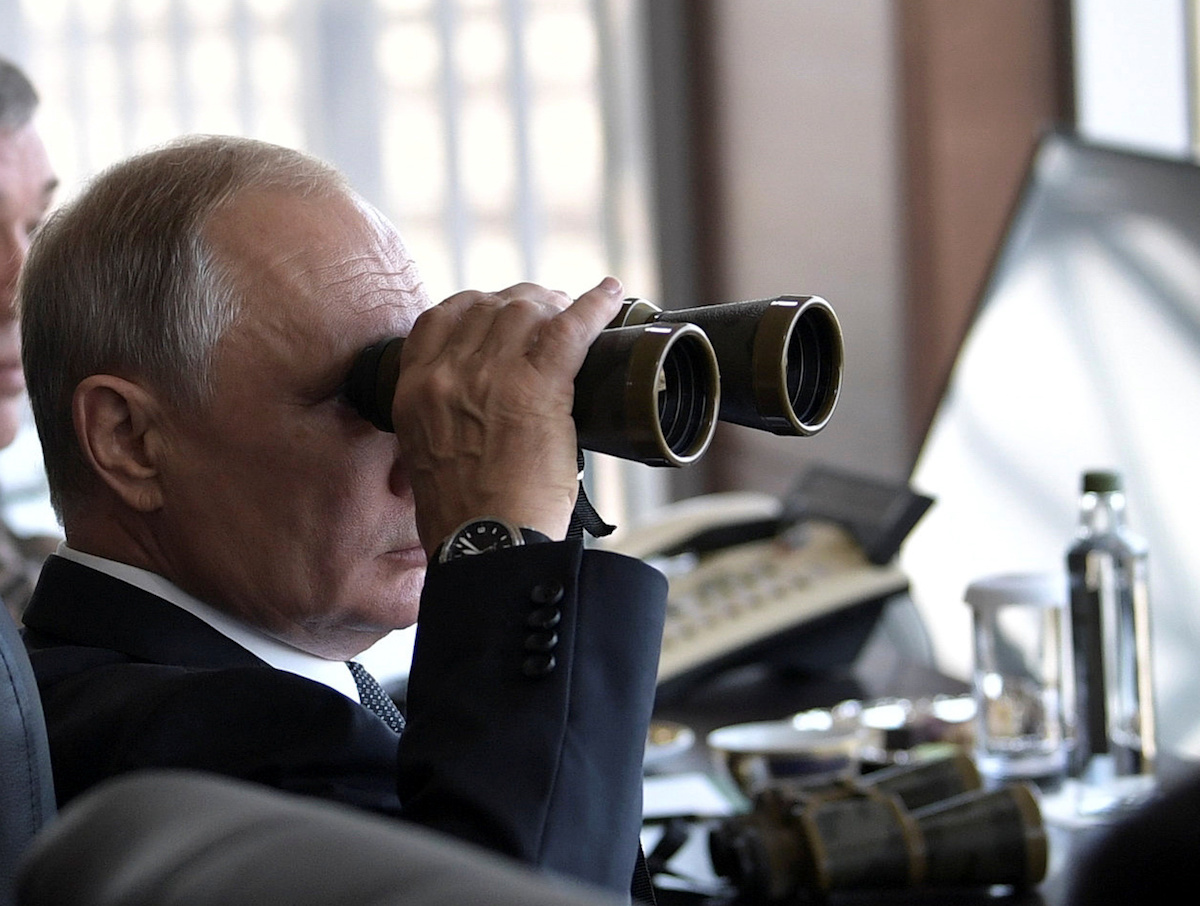Op-ed: Has Vladimir Putin run out of luck?

Vladimir Putin has enjoyed an incredible amount of luck during his time in power. Record high prices for oil and gas, the indulgent attitude of western leaders and the obedience of the Russian population at large; all of this has allowed the Russian president to determine the country’s internal and external policies unilaterally.
Despite the fact that in the past his ratings have changed from time to time and even dropped, these decreases have been largely insignificant.
But now…
As it was then, as it is now
Vladimir Putin was elected for a fourth term in office just seven months ago. Over this period:
• The ruble has devaluated by 25 per cent;
• Taxes for the population have risen;
• The central bank has lost control of inflation: the population’s expenses are increasing twice as fast as their income;
• Due to various conflicts, even relations with countries that have a neutral attitude towards Russia such as Greece, Switzerland and Israel, have suffered;
• There has been a change of power in Armenia, and its foreign policy is becoming less and less pro-Russian;
• A scandal took place in Primorye where blatant electoral violations forced the authorities to nullify results for the position of governor;
• Candidates from the ruling United Russia party have lost governor elections in three regions;
• A split in the church threatens to deprive the Russian Orthodox Church of a third of its income;
• Cypriot, Swiss and now even Chinese banks have begun viewing Russian clients suspiciously;
• Lawsuits against Ukraine have been lost, Gazprom cannot borrow money for large-scale projects;
• Foreign investors have stopped investing in Russian promissory notes, and they have lost 12 per cent of their value;
• In Syria (from where troops had been ‘withdrawn’), 15 officers died and another aircraft, the 10th, was lost;
• Sanctions unprecedented in their severity since the Cold War have been imposed against Russia for its supposed use of chemical weapons on the territory of the United Kingdom – in addition to those that had been introduced for the Russian Federation’s annexation of Crimea and its interference in south-western Ukraine;
• The retirement age in the country will rise dramatically in the next few years.
What has changed?
Experts have warned for a while now:
• An economy that is 65 per cent dependent on trade in energy is not stable. Sooner or later, the period of abnormally high prices for hydrocarbons will end;
• Corruption in Russia has taken on a systemic character. The financial extent of corruption can be measured in tens of billions of US dollars, and this will eventually evoke deep dissatisfaction among the population;
• Russia cannot afford to be overly aggressive on the international stage. Its economy is too dependent on the global economy and its allies are few and far between, not to mention not very influential.
Vladimir Putin and his circles have ignored these warnings.
It’s possible that his allies believed in his “legendary luck”, and that the events over the past seven months were actually a surprise to them.
It is possible that they simply don’t know any other way of ruling – that is, civilised and modern approaches to governance.
What’s next?
Having come up against an unexpected string of serious problems, the Russian leadership has a serious choice to make: to tighten the screws or loosen things up a bit.
Judging by Putin’s latest moves, it would seem that the choice has been made in favour of “tightening the screws”.
• Protests against raising the retirement age have been met with brute force;
• The leader of the Russian opposition Alexei Navalny is serving prison term after prison term;
• The propaganda campaign in the state media is gaining momentum, the aim of which is to convince the population that the West and Ukraine are to blame for Russia’s ills, and increasingly larger funds are being sent to police departments to be used in the event of mass protests.
However, if one looks closely, it is clear that the political austerity of the regime is of a rather chaotic character. The propaganda efforts meant to justify the regime is reminiscent of hysterics.
This means that the Russian president has no systemic answer to the problems that have piled up over the last few years. He is simply hoping for luck, as he has in the past.
Will his gamble be justified? So far, the challenges only continue to multiply, and instability is growing.
This must be a cause for concern for Russia’s neighbours who share a border with such a large country that is armed to the teeth with chemical and nuclear weapons.



















